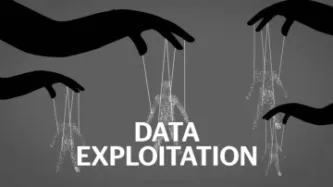Search
Content type: Long Read
The era where we were in control of the data on our own computers has been replaced with devices containing sensors we cannot control, storing data we cannot access, in operating systems we cannot monitor, in environments where our rights are rendered meaningless. Soon the default will shift from us interacting directly with our devices to interacting with devices we have no control over and no knowledge that we are generating data. Below we outline 10 ways in which this exploitation and…
Content type: News & Analysis
This post was written by PI Policy Officer Lucy Purdon.
In 1956, US Presidential hopeful Adlai Stevenson remarked that the hardest part of any political campaign is how to win without proving you are unworthy of winning. Political campaigning has always been a messy affair and now the online space is where elections are truly won and lost. Highly targeted campaign messages and adverts flood online searches and social media feeds. Click, share, repeat; this is what political engagement looks…
Content type: Press release
Press Release: New report shows how car rental companies are failing to protect drivers' information
A new report by Privacy International shows how car rental companies and car-share schemes are failing to protect drivers' personal information, such as their location, smart phone contents, and place of residence.
The report is here: https://privacyinternational.org/node/987
Key points
Privacy International (PI) rented a series of internet-connected cars and examined the information which was collected and retained on the rental cars' infotainment system*. Every car PI rented…
Content type: Examples
In 2016, researchers discovered that the personalisation built into online advertising platforms such as Facebook is making it easy to invisibly bypass anti-discrimination laws regarding housing and employment. Under the US Fair Housing Act, it would be illegal for ads to explicitly state a preference based on race, colour, religion, gender, disability, or familial status. Despite this, some policies - such as giving preference to people who already this - work to ensure that white…
Content type: Examples
Few people realise how many databases may include images of their face; these may be owned by data brokers, social media companies such as Facebook and Snapchat, and governments. The systems in use by Snap and the Chinese start-up Face++ don't save facial images, but map detailed points on faces and store that data instead. The FBI's latest system, as of 2017, gave it the ability to scan the images of millions of ordinary Americans collected from millions of mugshots and the driver's licence…
Content type: Examples
A 2017 lawsuit filed by Chicagoan Kyle Zak against Bose Corp alleges that the company uses the Bose Connect app associated with its high-end Q35 wireless headphones to spy on its customers, tracking the music, podcasts, and other audio they listen to and then violates their privacy rights by selling the information without permission. The case reflects many of the concerns associated with Internet of Things devices, which frequently arrive with shoddy security or dubious data…
Content type: News & Analysis
7 July 2017
War profiteers are finding the data business easy going. The have wielded their unwarranted influence and applied their business model of causing and then profiting from insecurity and applied it to the digital age; the results have been more profit for them and less liberty for you.
When a politician riles against an evil tech giant for providing ‘safe spaces’ online, it’s a political distraction. The real battle for your data is being fought between the emergent tech…
Content type: Report
Financial services are changing, with technology being a key driver. It is affecting the nature of financial services, from credit and lending through to insurance, and even the future of money itself.
The field of fintech is where the attention and investment is flowing. Within it, new sources of data are being used by existing institutions and new entrants. They are using new forms of data analysis.
These changes are significant to this sector and the lives of people it serves. This…
Content type: Case Study
For those concerned by reporting of Facebook’s exploitation of user data to generate sensitive insights into its users, it is worth taking note of WeChat, a Chinese super-app whose success has made it the envy of Western technology giants, including Facebook. WeChat has more than 900 million users. It serves as a portal for nearly every variety of connected activity in China. Approximately 30% of all time Chinese users spend on the mobile internet centers around…
Content type: News & Analysis
Image source: AFP
Earlier this month, the Kenyan daily The Star reported that UK-based data analytics firm Cambridge Analytica had been quietly contracted by President Uhuru Kenyatta’s party in a bid to win himself a second term in office. State House officials were quick to deny the claims, while the company itself issued no comment.
Cambridge Analytica has exploded onto the scene following revelations that its psychometric profiling techniques were used and reportedly played a role in…
Content type: News & Analysis
Creative Commons Photo Credit: Source
The financial services industry is eager to gather more and more data about our lives. Apart from mining the data they have historically collected such as credit history, they are looking to use our social media profiles to reach into our friendships and social interactions. They are using these data in new and unexpected ways, including personality profiling to determine the risk of lending to you, and thus the price you will pay.
Firstcarquote, a…
Content type: News & Analysis
An investigation released by Privacy International this week reveals the Facebook shut-down Thailand experienced in May 2014, at the height of the military coup, may have had more to do with attempting to surveil online communications, rather than censoring Facebook users. This revelation indicates there could be more to other previous internet shutdowns that have happened during times of political unrest.
In May 2014, following months of protest, the Thai military overthrew the…
Content type: News & Analysis
This piece originally appeared in the Responsible Data Forum.
Would you mind if, every time you post a comment on Twitter, Facebook or another social media platform, the police logged it? I mean, it’s public — surely it’s fair game?
If you think that’s OK, then maybe it’s also OK for a police officer to follow you when you walk down a busy street. That’s also public, right?
Clearly, definitions of public and private become very problematic when you are communicating with potentially…
Content type: Long Read
Tech firms and governments are keen to use algorithms and AI, everywhere. We urgently need to understand what algorithms, intelligence, and machine learning actually are so that we can disentangle the optimism from the hype. It will also ensure that we come up with meaningful responses and ultimately protections and safeguards.
Many technologists emerge from University, College or graduate courses with the impression that technology is neutral and believe that all systems they apply their…
Content type: News & Analysis
The connectivity afforded by the internet has changed the world forever. While the increasing ‘corporatization’ of what many still feel is an open, non-hierarchical, largely uncensored and unfiltered ecosystem, this is increasingly not the case. The emergence of the ‘Internet of Things’ will soon throw into sharp relief who owns the internet and who owns the data we all generate when using the internet. Companies today have a vested interest in portraying their products as safe and…
Content type: News & Analysis
Privacy can be seen as a reflex of innovation. One of the seminal pieces on the right to privacy as the 'right to be let alone emerged in response to the camera and its use by the tabloid media. Seminal jurisprudence is in response to new surveillance innovations... though often with significant delays.
While one approach would be to say that privacy is a norm and that with modern technologies the norm must be reconsidered and if necessary, abandoned; I think there’s an interesting idea around…
Content type: News & Analysis
How not to do data-driven due diligence
A powerful new VICE News investigation has blown open the secretive world of risk management and the most influential database you've never heard of: World-Check.
Over 300 government and intelligence agencies, 49 of the 50 biggest banks, and 9 of the top 10 global law firms use World-Check to conduct due diligence, including checking compliance with anti-terrorism financing and sanctions laws. World-Check gathers and analyses open source…
Content type: News & Analysis
The relationship between users and companies is based primarily on trust. However, many recent developments have the potential to undermine this trust and to question companies loyalties to their users. From excessive data collection and transmission to the failure to guard against basic security risks, one could be forgiven for thinking that the privacy and security interests of users and devices have taken a back seat. Governments of the world are unilaterally endeavouring to…
Content type: Press release
28 October 2015
Leading privacy and consumer organizations meeting in Amsterdam this week called on data protection officials around the world to support a meaningful legal framework that would protect the fundamental rights of both citizens and consumers in the online era.
In a statement issued today at the International Data Protection and Privacy Conference, the organizations criticized a just-released “Bridges” report that primarily recommended a continuation of industry self-regulation…
Content type: News & Analysis
For some time, many in the privacy and security community hoped for a completely open-source mobile phone, one that would allow for code to be examined and strengthened to prevent malicious attacks to a user's privacy.
So when Canonical, the company that primarily funds Ubuntu GNU/Linux, announced it was entering the mobile phone market, we were among the many who hailed this development. Given the company's track record, it was believed that the open-source philosophy of Ubuntu would…
Content type: Press release
A European privacy group claimed today that dozens of amendments to the new Data Protection Regulation being proposed by Members of the European Parliament (MEPs) are being copied word-for-word from corporate lobby papers, with MEPs frequently failing to even remember their own amendments. Max Schrems, of the website and campaign Europe v Facebook, noticed striking similarities between proposed amendments and lobby papers written by representatives of Amazon, eBay, the American Chamber of…
Content type: News & Analysis
Privacy International has compiled data on the privacy provisions in national constitutions around the world, including which countries have constitutional protections, whether they come from international agreements, what aspects of privacy are actually protected and when those protections were enacted. We are pleased to make this information available under a Creative Commons license for organizations, researchers, students and the community at large to use to support their work (…
Content type: News & Analysis
Earlier this week it was announced that UK-based Datasift would start offering their customers the ability to mine Twitter’s past two years of tweets for market research purposes. The licensing fees will add another revenue stream to Twitter's portfolio - but at what cost to the company's reputation? Twitter, once the darling of the privacy world, seems to have lost its way.
Datasift don't believe that there are any privacy implications to their new service. In fact, they didn't…
Content type: News & Analysis
Gradually and almost imperceptibly, we have immersed ourselves in a global hypermedia environment. This environment increasingly contains everything we do: we work, we play, we organize within it. Our lives have been, in essence, turned inside out and dispersed in endless ethereal clouds - multi-verses - that follow us around in extra dimensionality. “Big Data” refers to the endless digital grains of sand we produce as we move, think and act. Internet Service Providers, web hosting companies,…
Content type: News & Analysis
Independent security researcher Trevor Eckhart revealed yesterday that a recent software update to some HTC smartphones has accidentally given third party applications access to huge amounts of private data, including call logs, geolocation history, SMS data and a whole lot more.
The update surreptitiously installs a suite of applications logging users' interactions with their devices. When a device is first switched on, the user ostensibly has the option not to allow HTC to…
Content type: Press release
The global watchdog Privacy International has today simultaneously filed complaints against Google's controversial Gmail service with privacy regulators in sixteen countries.
The move creates Google's biggest challenge yet in the short but turbulent public debate over its new email service.
Complaints have been filed with the privacy and data protection regulators of France, Germany, the Netherlands, Greece, Italy, Spain, Czech Republic, Belgium, Denmark, Sweden, Ireland, Portugal, Poland,…

























